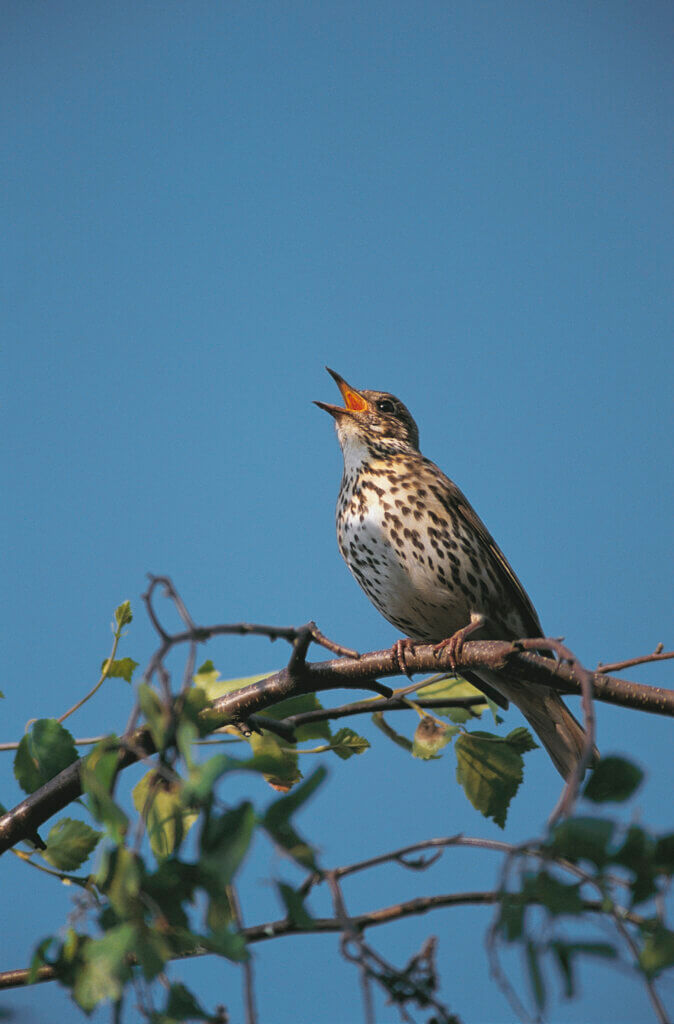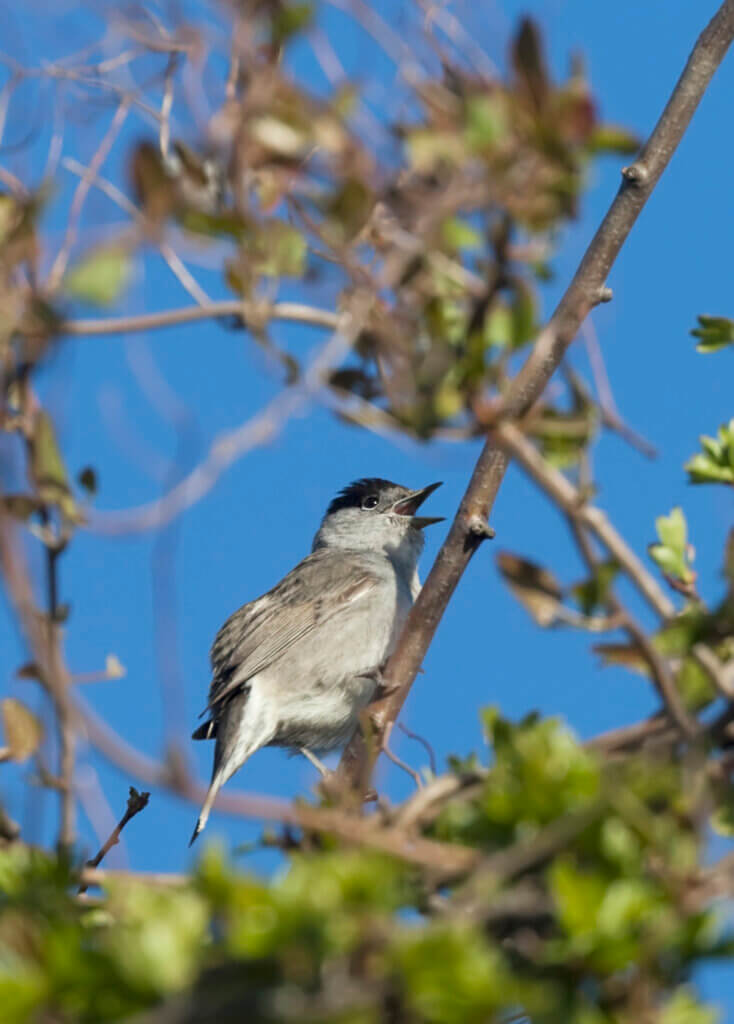This weekend, wake up to the symphony of the Dawn Chorus!
- Sunday 3rd May is International Dawn Chorus Day – a day to celebrate the early morning swell of birdsong!
- In this unprecedented time when many of us have limited access to the outdoors, you only need to open your window to enjoy this natural phenomenon.
- 40 million birds have disappeared from the UK since 1970, but there are many ways you can help, from providing some water to putting up a bird feeder.

This Sunday, 3rd May is International Dawn Chorus Day! While early morning bird song continues through to June, this day is a wonderful reminder to celebrate the daily treat of a birdsong choir. Starting about an hour before sunrise (around 4:30am) birds take advantage of the still, quiet air to trumpet, squeak and caw to attract a mate or warn off rivals from their territory. Don’t worry if that’s a bit early for you, though – they often continue singing until about 7am so you can catch their final encore.
Many of us have limited or no access to the outdoors right now, so it’s the perfect time to throw open your windows and let the birdsong in. Even if you don’t have a garden, you will still be able to enjoy the majesty of this natural alarm clock, especially with the current reduction in noise pollution. You may even be able to hear spring migrants who have flown across continents to get to the UK – swifts and swallows often travel all the way from Africa!
These are some of the birds you may be able to hear as part of your local dawn chorus:
- Blackcap – a warbling verse
- Dunnock – fast and squeaky bursts
- Robin – short, laid-back verses with a ‘liquid’ quality
- Song thrush – rich and confident calls
- Willow warbler – a soft, gentle whistle
- Wren – packed, bold and loud
- Chiffchaff – helpfully sounds like ‘chiff chaff’
- Skylark – a pleasant burble sometimes minutes long
- Great tit – a two-note ‘tee-cher tee-cher’ call
- Woodpigeon – a wonderfully recognisable ‘coo’ call
- Cuckoo – the males’ recognisable ‘cuck-oo’
- Nightingale – high, low and rich notes
Sadly, bird populations in the UK are declining, and many of the birds who lend their song to the Dawn Chorus are struggling. For example, cuckoos have declined by 65% since the 1980s, while in the last 60 years the sweet song of the nightingale has seen a 90% reduction.
The good news is that there are lots of things you can do to help – there’s a whole list on the RSPB website, including putting out suitable food scraps, hanging bird boxes or even making a bird bath from an upturned bin lid!
Beccy Speight, CEO of the RSPB, says: “Waking up to the glory of the dawn chorus is one of the most uplifting parts of spring, particularly at this uncertain time. The alarm clock choir of robins, wrens, blackbirds, song thrushes and our other brilliant birds is utterly inspirational and a reminder of how nature can lift our spirits. So many people are taking solace from it.
But while the impact of the current lockdown means that many of us are hearing birdsong more loudly than ever before, we must remember that 40 million birds have been lost from UK skies in just 50 years – and we all have a part to play in saving this wonder for future generations. Let’s look after our birds as much as they are helping us.”
There are a whole range of ways you can help, so please head to the RSPB website (www.rspb.org.uk) for some inspiration. Or join in our celebration of the Dawn Chorus on social media, using the hashtag #DawnChorusDay.
Twitter – @Natures_Voice | Facebook – @RSPBLoveNature | Instagram – @rspb_love_nature
To find out more, please visit www.rspb.org.uk/dawnchorus

ENDS
[registration_form]